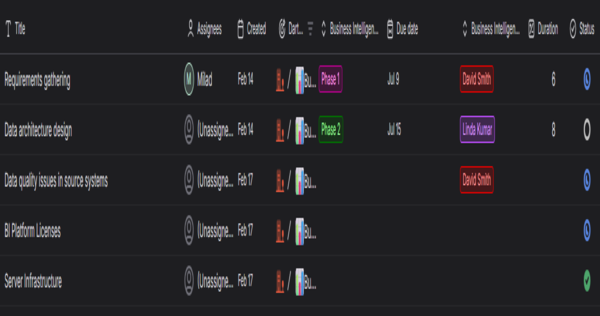The difference between high-performing Agile teams and struggling ones often comes down to continuous improvement. While many teams adopt Agile methodologies, few consistently measure and optimize their health, leading to burnout, misalignment, and inefficiency.
The agile team health check template offers a structured framework designed to assess, diagnose, and improve your team’s Agile maturity.
Agile Team Health Check Template: Usage Guide
A 12-week timeline ensures a smooth rollout of your Agile Team Health Check process. This iterative approach keeps improvements measurable, sustainable, and aligned with your team’s evolving needs.

This template helps you evaluate five critical aspects of Agile team performance to drive successful project collaboration and better productivity:
Assess Team Morale & Engagement
Use the Team Sentiment Analysis section to gauge motivation levels and identify burnout risks before they impact delivery. Schedule regular pulse checks to track trends and intervene early when engagement dips.
Evaluate Collaboration & Communication
Leverage the Cross-Functional Feedback component to uncover bottlenecks in workflows and handoffs. Map communication channels to ensure critical updates reach the right stakeholders without overload.
Measure Delivery Efficiency
Track sprint predictability and cycle times with the Performance Metrics Dashboard to spot inefficiencies. Set baselines for "healthy" delivery rates and flag deviations for immediate review.
Identify Process Improvements
Use the Retrospective Insights section to turn feedback into actionable process tweaks. Prioritize experiments (e.g., shorter standups or async updates) and measure their impact over 1-2 sprints.
Align on Agile Maturity
The Agile Health Radar helps teams visualize their strengths and growth areas across key Agile principles. Create targeted improvement plans by voting on which Agile pillar (e.g., transparency, adaptation) needs focus next.
The Agile Team Challenge
Without a structured health check, teams risk falling into reactive patterns instead of continuous improvement. Agile teams face unique hurdles that generic assessments miss:
- Sprint Fatigue: Maintaining momentum without burnout
- Alignment Gaps: Balancing autonomy with strategic goals
- Feedback Loops: Turning retrospectives into real change
- Technical Debt vs. Speed: Delivering fast without sacrificing quality
Breaking the Stagnation Cycle: From Insight to Action
Studies show that 60% of Agile teams struggle with consistent improvement due to vague retrospectives and lack of follow-through. Dart’s template solves this by providing:
- Structured Health Metrics - Quantifiable indicators of team performance
- Actionable Retrospective Prompts - Moving beyond "what went well" to real solutions
- Progress Tracking - Comparing health scores sprint-over-sprint
- Leadership Alignment Tools - Ensuring team feedback drives organizational change
This bridges the gap between identifying problems and implementing solutions, keeping your team continuously improving.
Why Generic Retrospective Templates Don’t Work for Agile Teams
Without Agile-focused diagnostics, teams miss the root causes of inefficiency.
Improve Your Team’s Agile Health
Start your next sprint with clarity: By diagnosing risks early and addressing gaps systematically, you’ll foster a culture of continuous growth rather than reactive fixes.
Teams using structured health checks report faster cycle times and higher morale within just a few sprints. The difference isn’t just in metrics. It’s in energy, ownership, and results.
Don’t let your retrospectives become routine check-ins with no real impact. With Dart’s templates, you can turn insights into lasting improvements - keeping your team engaged, aligned, and high-performing.







